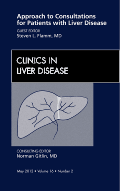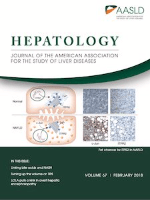
Hepatology Forum
Scope & Guideline
Connecting professionals for a healthier tomorrow.
Introduction
Aims and Scopes
- Liver Disease Mechanisms and Pathophysiology:
Research exploring the underlying mechanisms of various liver diseases, including hepatitis, fatty liver diseases, and liver cancer, contributes to a deeper understanding of disease progression and management. - Transplantation and Surgical Interventions:
The journal emphasizes studies on liver transplantation, including donor selection, surgical techniques, and post-operative care, which are crucial for improving patient outcomes. - Innovative Diagnostic Approaches:
The publication covers advancements in diagnostic methodologies, such as imaging techniques and biomarker identification, enhancing the accuracy and efficiency of liver disease diagnoses. - Therapeutic Strategies and Clinical Trials:
A significant focus is placed on novel therapeutic interventions for liver diseases, including pharmacological treatments, dietary modifications, and alternative therapies, supported by clinical trial data. - Public Health and Epidemiology:
The journal addresses the epidemiological aspects of liver diseases, including prevalence studies and risk factor assessments, to inform public health strategies and resource allocation. - Genetic and Molecular Research:
Research investigating genetic predispositions and molecular pathways involved in liver diseases is a core area, contributing to personalized medicine approaches in hepatology.
Trending and Emerging
- Metabolic Dysfunction-Associated Liver Disease (MASLD):
Recent publications indicate a significant increase in research focused on metabolic dysfunction-associated liver disease, reflecting its rising prevalence and importance in the context of global health. - Artificial Intelligence in Hepatology:
The integration of artificial intelligence for predictive modeling and diagnostic purposes in liver disease management is gaining traction, highlighting a trend towards utilizing technology in clinical practice. - Impact of COVID-19 on Liver Health:
The exploration of COVID-19's effects on liver diseases, including complications and management strategies, has emerged as a critical area of research in light of the pandemic's ongoing impact. - Personalized Medicine and Genetic Studies:
There is a growing trend towards personalized medicine, with an emphasis on genetic studies that tailor treatment approaches based on individual patient profiles and genetic backgrounds. - Non-Invasive Assessment Techniques:
The rise of non-invasive techniques for assessing liver conditions, such as elastography and biochemical markers, reflects an emerging focus on improving patient comfort and clinical outcomes.
Declining or Waning
- Traditional Pharmaceutical Treatments:
There appears to be a waning focus on older, conventional pharmacological treatments for liver diseases, possibly due to the emergence of more effective and targeted therapies. - Basic Science Without Clinical Application:
Research that primarily explores basic science without clear clinical implications or applications is becoming less prominent, as the journal increasingly emphasizes translational research. - Case Reports of Rare Conditions:
While case reports provide valuable insights, the frequency of publications on rare liver conditions has diminished, likely as the journal prioritizes studies with broader clinical relevance.
Similar Journals

Expert Review of Gastroenterology & Hepatology
Empowering Professionals with High-Impact ResearchExpert Review of Gastroenterology & Hepatology is a premier journal published by Taylor & Francis Ltd that aims to bridge the gap between clinical practice and research in the fields of gastroenterology and hepatology. Established in 2007, this journal has rapidly gained recognition, boasting a Q1 ranking in Gastroenterology and a Q2 ranking in Hepatology for 2023, while achieving impressive Scopus rankings of 31st and 25th respectively in these disciplines, placing it within the top 81st and 70th percentiles. The journal’s objective is to provide a comprehensive platform for the latest developments, innovative treatments, and critical reviews, catering to researchers, healthcare professionals, and students alike. Located in the United Kingdom, the journal does not operate under an open access model but ensures that its content is accessible to a global audience through institutional subscriptions. By consistently publishing high-impact reviews and articles, Expert Review of Gastroenterology & Hepatology solidifies its role as a vital resource in advancing knowledge and clinical practice within these challenging and evolving fields.

World Journal of Hepatology
Exploring the complexities of liver diseases worldwide.World Journal of Hepatology is a premier academic journal dedicated to advancing the field of hepatology. Published by BAISHIDENG PUBLISHING GROUP INC, this journal serves as a crucial platform for disseminating innovative research findings and critical reviews from around the globe. With its ISSN 1948-5182 and E-ISSN 1948-5182, the journal has established a notable presence since its inception in 2009, covering a wide range of topics relevant to liver diseases, including but not limited to hepatitis, liver cancer, and metabolic liver disorders. Currently ranked 41/82 in the field of hepatology by Scopus, representing the 50th percentile, it has achieved a Q3 quartile ranking in the 2023 category, underscoring its growing influence in the medical community. With a commitment to open access for its readership, the World Journal of Hepatology enriches the global discourse on liver health and disease management, making it an essential resource for researchers, clinicians, and students alike.

Korean Journal of Gastroenterology
Fostering Global Dialogue on Digestive HealthKorean Journal of Gastroenterology (ISSN: 1598-9992, E-ISSN: 2233-6869), published by the Korean Society of Gastroenterology, has been a premier outlet for research and advancements in the field of gastroenterology since its inception in 1968. This open-access journal, based in South Korea, fosters a global dialogue on gastrointestinal health, embracing contributions from a diverse array of disciplines within medicine. It is currently ranked in the Q4 quartile for miscellaneous medicine and holds a Scopus rank of #323 out of 636 in general medicine, reflecting its commitment to publishing impactful research despite its relatively recent establishment in high-impact metrics. With a continuous publication timeline extending through to 2024, the journal aims to enhance understanding of gastrointestinal disorders and promote innovative treatments, making it an essential resource for researchers, clinicians, and students alike who seek to stay abreast of the latest developments and clinical applications in gastroenterology.

Clinics in Liver Disease
Navigating the landscape of liver health and disease.Clinics in Liver Disease is an esteemed peer-reviewed journal published by W B Saunders Co-Elsevier Inc, dedicated to advancing the field of hepatology. Established in 1997 and covering a broad range of topics within liver disease research, this journal serves as a vital resource for researchers, clinicians, and students engaged in the study of liver health and diseases. With a commendable impact factor placing it within the Q2 category in Hepatology and ranking #32 out of 82 in the Scopus classifications, it consistently disseminates high-quality research and clinical insights. The journal’s commitment to promoting understanding and management of liver diseases is reflected in its rigorous editorial standards and comprehensive review processes. Although not an open-access publication, Clinics in Liver Disease offers subscription options that ensure accessibility to up-to-date research and reviews critical for both academic and clinical success.

AMERICAN JOURNAL OF PHYSIOLOGY-GASTROINTESTINAL AND LIVER PHYSIOLOGY
Connecting Researchers and Clinicians in Digestive HealthAmerican Journal of Physiology-Gastrointestinal and Liver Physiology, published by the American Physiological Society, stands as a leading journal in the domains of gastroenterology, hepatology, and overall physiology. With an impressive impact factor and consistent ranking in the Q1 quartile across multiple categories, this journal provides a vital platform for disseminating advanced research and innovative findings related to gastrointestinal and liver physiology. Since its inception in 1980, the journal has fostered a community of researchers and clinicians dedicated to understanding and improving digestive and liver health. While maintaining a traditional subscription model, it ensures high-quality peer-reviewed content that is crucial for informed professional practice and academic inquiry. The journal’s Scopus ranks highlight its significant impact in the fields of gastroenterology and hepatology, making it an indispensable resource for academics and practitioners alike, eagerly exploring both foundational and cutting-edge topics in physiology.

Canadian Journal of Gastroenterology and Hepatology
Exploring Innovations in Liver and Gastrointestinal HealthCanadian Journal of Gastroenterology and Hepatology, published by HINDAWI LTD, serves as a vital resource in the fields of gastroenterology and hepatology. Since its inception in 1987, this open-access journal has made significant contributions to advancing research and clinical practice through its comprehensive coverage of topics ranging from liver diseases to gastrointestinal disorders. With an impressive Q2 ranking in Gastroenterology and a Q3 ranking in Hepatology as of 2023, the journal has established itself as an influential platform for researchers and healthcare professionals seeking to disseminate and acquire knowledge. The journal is based in Egypt, with its operational headquarters located in London, England. Notably, it holds a respectable standing in Scopus rankings, placed at Rank #64 in Gastroenterology and Rank #34 in Hepatology, reflecting its impact and relevance in the medical community. With a commitment to quality and accessibility, the Canadian Journal of Gastroenterology and Hepatology continues to foster innovation and collaboration among its readers.

HEPATOLOGY
Transforming liver health with groundbreaking insights.HEPATOLOGY is a premier scholarly journal dedicated to advancing the field of liver research and clinical practice. Published by Lippincott Williams & Wilkins, this journal boasts an impressive impact factor and holds a prestigious position as one of the top-ranked publications in both Hepatology (Q1) and Medicine (miscellaneous, Q1) categories as of 2023. HEPATOLOGY, with its commitment to disseminating high-quality research since its inception in 1981, serves as an essential platform for researchers, clinicians, and students focusing on liver diseases, including hepatitis, cirrhosis, and liver cancer. The journal's editorial board comprises leading experts who guide the publication towards its objective of fostering innovation and collaboration in this critical area of health. Although it does not offer an open access model, HEPATOLOGY ensures that its comprehensive analyses, reviews, and groundbreaking studies are accessible to the global medical community. Join the discourse in hepatology and be a part of a transformative journey through this indispensable resource.

EUROPEAN JOURNAL OF GASTROENTEROLOGY & HEPATOLOGY
Advancing knowledge in digestive health.The EUROPEAN JOURNAL OF GASTROENTEROLOGY & HEPATOLOGY, published by LIPPINCOTT WILLIAMS & WILKINS, serves as a key platform for disseminating cutting-edge research in the fields of gastroenterology and hepatology since its inception in 1989. With its ISSN 0954-691X and E-ISSN 1473-5687, the journal has established a prominent reputation, as reflected in its 2023 rankings, placing it in Q2 for Gastroenterology and Q3 for Hepatology. It is ranked #75 out of 167 in gastroenterology and #39 out of 82 in hepatology according to Scopus, highlighting its importance in advancing knowledge and clinical practices. While it does not currently offer open access options, the journal remains essential for researchers, healthcare professionals, and students seeking to stay abreast of significant developments and innovations in digestive health. By providing rigorous peer-reviewed articles, the EUROPEAN JOURNAL OF GASTROENTEROLOGY & HEPATOLOGY continues to contribute to the understanding and treatment of gastrointestinal and liver diseases, making it a vital resource in the medical community.

Gastrointestinal Disorders
Innovating Insights in Gastroenterology and BeyondGastrointestinal Disorders is a prominent open-access journal published by MDPI, based in Switzerland, that focuses on the latest research and innovations in the fields of gastroenterology, hepatology, and immunology. Since its inception in 2019, the journal has provided a vital platform for researchers and professionals to disseminate their findings, engaging with a global audience keen on advancing knowledge in gastrointestinal health. With a dedicated commitment to high-quality, peer-reviewed articles, Gastrointestinal Disorders has gained recognition in 2023, achieving Q3 status in gastroenterology and notable rankings in several other categories, including a respectable position in the quartiles for hepatology, immunology, and oncology. Despite its recent establishment, the journal has quickly become a valuable resource, facilitating open access to critical insights in the study of gastrointestinal diseases and their management, ensuring that emerging research is readily available to inform clinical practice and educate future professionals.

Frontline Gastroenterology
Advancing the Frontiers of GastroenterologyFrontline Gastroenterology is a leading academic journal published by the BMJ Publishing Group that plays a vital role in advancing the field of gastroenterology and hepatology. Established in 2013, this prestigious journal has established itself as a significant resource for researchers, healthcare professionals, and students alike, maintaining a commendable impact factor and consistently achieving a Q2 ranking in both gastroenterology and hepatology categories as of 2023. With its focus on disseminating high-quality, peer-reviewed research, Frontline Gastroenterology covers a wide scope of topics pertinent to the understanding, diagnosis, and treatment of gastrointestinal and liver diseases. Although it does not offer Open Access options, its content is accessible through various institutional and personal subscriptions, ensuring that critical findings reach an international audience. As the journal continues to converge into the future, it remains dedicated to fostering innovation and dialogue in gastroenterological sciences.